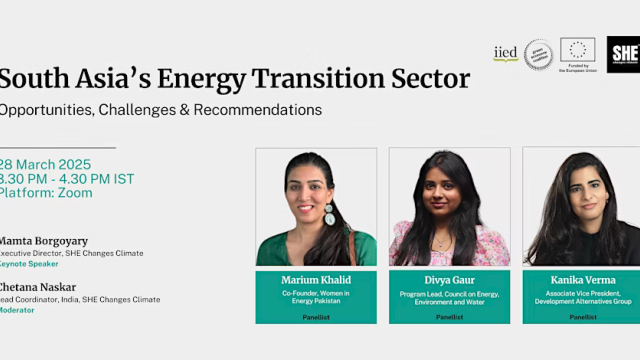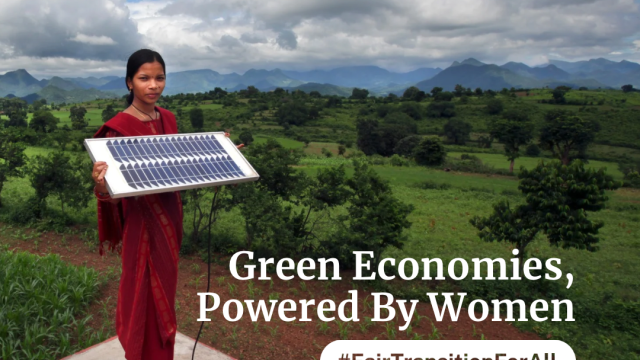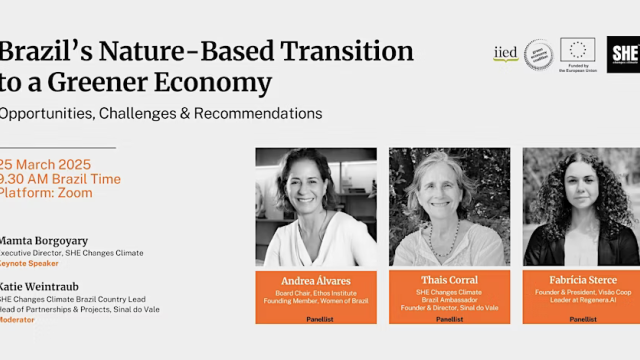Leaving no young person behind in South Africa
SA's Youth Day 2024 provides a significant opportunity to highlight the role of young people in small green businesses

Youth Day 2024 provides a significant opportunity to highlight the role of young people in the green economy and to celebrate their potential as change-makers.
The questions are why is there a very low representation of youth in the green economy in South Africa? The SDGs’ mantra, which all countries signed up to through the United Nations, is “Leave no one behind.” The 2030 goals target health and wellbeing for all and the UN’s Every Woman Every Child global strategy for women’s, children’s, and adolescents’ health (2016-2030) is the unifying roadmap to achieve that for women, children, and adolescents.
If we remind ourselves of the Bruntland definition of Sustainable Development, we will recall that Sustainable Development means: “Creating a better world for our children`s children”. The youth are the leaders of tomorrow and they want to live in a more equitable and sustainable low carbon world. They want to breathe the same good air quality that we have in this generation, they want to be able to eat healthy nutrition food and drink clean water. Thus, they need an opportunity to discover greener career pathways.
South Africa is facing high youth unemployment, this situation is worsening despite of many of the YES and other Youth Initiatives that are targeting youth unemployment by offering stipends and work experience. These initiatives are focussed on job seekers in an economy that is suffering from high job losses. It might not be the most strategic way to empower youth,
An area that is overlooked is entrepreneurial career development. Youth-owned SMME Development in new Green Industries is gaining some traction. Thus sustainable youth empowerment strategies needs to look at avenues is to “make the circle bigger and younger” by incorporating youth-owned SMMEs into South Africa's Just Transition to build a low-carbon, equitable future. By providing targeted support and fostering an environment that encourages innovation and inclusivity, South Africa can ensure that its transition to a sustainable economy benefits all its citizens, particularly the younger generation. This not only addresses current socio-economic challenges but also builds a resilient and prosperous future for the country.
“ There is hope for a greener and inclusive Green Future for South Africa, a true rainbow nation where youth can access economic opportunities and also address climate resilience.”
TIPS researchers, Elize Hattingh and Dr Michael Hector have been investigated green business barriers that SMMEs in the energy, waste and water sectors are experiencing over the past 6 months. The focus is on Just Transition inclusion and youth-owned SMMEs were interviewed to unpack their business barriers.
TIPS researchers interviewed Sibongile Sithole from MLPC Projects Projects on 14 February 2024 about her green business barriers as female and youth-owned SMME in the renewable energy sector. She is a qualified electrical engineer and Solar Panel installer. She is gaining some market traction over the past two years as a new comer, her access to finance is a stumbeling block. She explained that high interest rates for working capital is slowing down her business.
One of the leading Youth Development Organisation in South Africa, Youth Bridge Trust was invited as a guest speaker at the TIPS workshop on 13 March to share more about their Green Economy Academy where they trained over 300 unemployed graduate youth to become green entrepreneurs. Ntisiki Gumbu, a Board Member and interim CEO spoke about the green business barriers that the unemployed youth were experiencing to start up green businesses.1
Gumbe explained that youth-owned SMMEs have limited track record due to a lack of work experience post-graduation, while often their businesses are in early stages and not yet bankable (investment ready). Thus, these business barriers are withholding them from participation in new green industries. Youth Bridge Trust is addressing these challenges by supporting youth to become investment ready. This is one of the best practice examples of a Youth in the Green Economy SMME development project that is very successful and scaling – they key success is upskill more unemployed youth entrepreneurs that can access market opportunities green industries.

Another Youth SMME Development initiative that is a game changer for new commers to gain experience is offered by the National Business Initiative (NBI).2 Nothando Mathe spoke at the TIPS workshop on 14 February and shared an overview of the Installation, Repair and Maintenance Initiative (IRM) – this is a TVET college work placement program designed for youth-owned SMMEs as qualified Plummers and electricians with other businesses where they can job shadow and learn how to run a business and also gain access to practical work experience in their field. This program addressed the barriers faced by young entrepreneurs to gain a track record in their field and offering them the opportunity to gain credibility and post program completions then they are more able to access markets on their own.
This is proof that there is hope for a greener and inclusive Green Future for South Africa, a true rainbow nation where youth can access economic opportunities and also address climate resilience. Expanding the involvement of youth in the Just Transition in South Africa is vital if we are truly committed to an equal and inclusive low carbon economy.
“ By providing targeted support and fostering an environment that encourages innovation and inclusivity, South Africa can ensure that its transition to a sustainable economy benefits all its citizens, particularly the younger generation”
Incorporating youth in South Africa's Just Transition is essential for building a sustainable and equitable future. By leveraging events like Youth Day to spotlight youth achievements and providing continuous support and opportunities, we can empower the next generation to lead the charge against climate change. Young people are not only the leaders of tomorrow but also the innovators and problem-solvers of today, capable of delivering impactful solutions to our most pressing environmental challenges
By providing targeted support and fostering an environment that encourages innovation and inclusivity, South Africa can ensure that its transition to a sustainable economy benefits all its citizens, particularly the younger generation. This not only addresses current socio-economic challenges but also builds a resilient and prosperous future for the country.
- Elize Hattingh, TIPS
Footnotes
About YBT – Manzipreneurs: This was a project funded by the Presidential Unemployment Stimulus Program to address Graduate unemployment in South Africa by developing green entrepreneurs.
The project started in 2001 and it is still active. The first Cohort was the Manzipreneurs project funded by the Water Research Commition. We had 300 unemployed graduates that participated over 6 months. These were unemployed graduate youth sitting at homes without jobs for almost two years post graduation from university. These are bright young minds that were qualified in engineering deciplines, water technicians, environmental management and even in business and marketing fields.
Youth Bridge Trust provided 300 youth to be explored to green industries and to address climate challenges in the local communities. From the 300 program participants, 71 new businesses were registered and recorded as susccesful start-ups. They are actively addressing Sustainable Development Goals in their local communities in South Africa by solving the energy crises, access to clean drinking water, sanitation solutions, food security, and providing responsible and integrated waste management where government infrastructure if failing – many informal settlements have no service deliveries for main issues like water provision, energy and waste management. These are areas where the youth were able to set up shop and provide solutions to enhance their communities and to make them more climate resilient.
The NBI is an independent business movement launched by former president Nelson Mandela. The NBI presented and discussed the development of inclusive skills to offset unemployment issues and foster entrepreneurial engagements, particularly throughout the township economy. The NBI outlines the IRM approach in the just transition framework. The IRM approach, model, objectives and strategies were presented to various stakeholders with a key emphasis on including the township economy within SMME barrier engagements highlighting the IRM as a model to promote inclusivity in townships.


